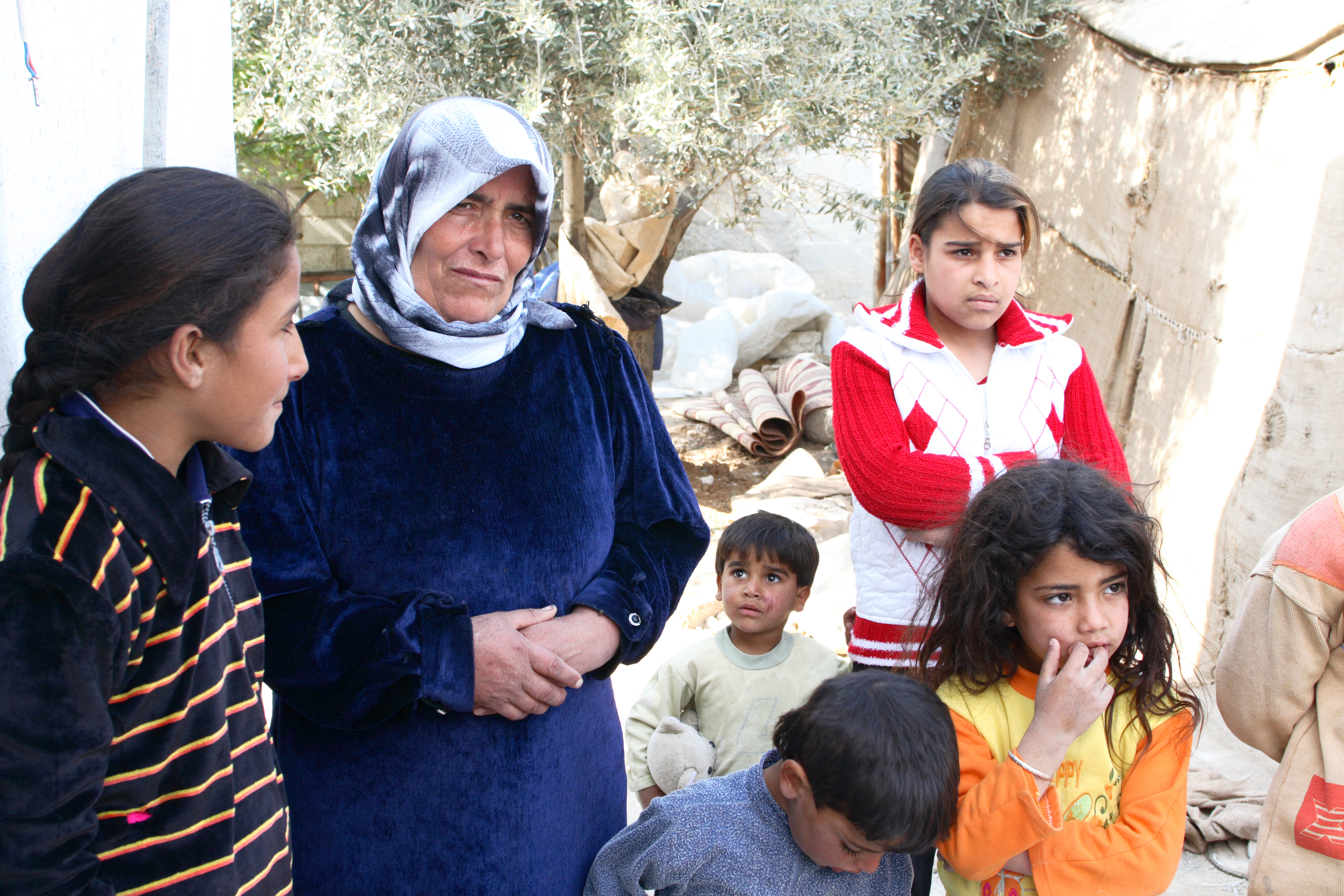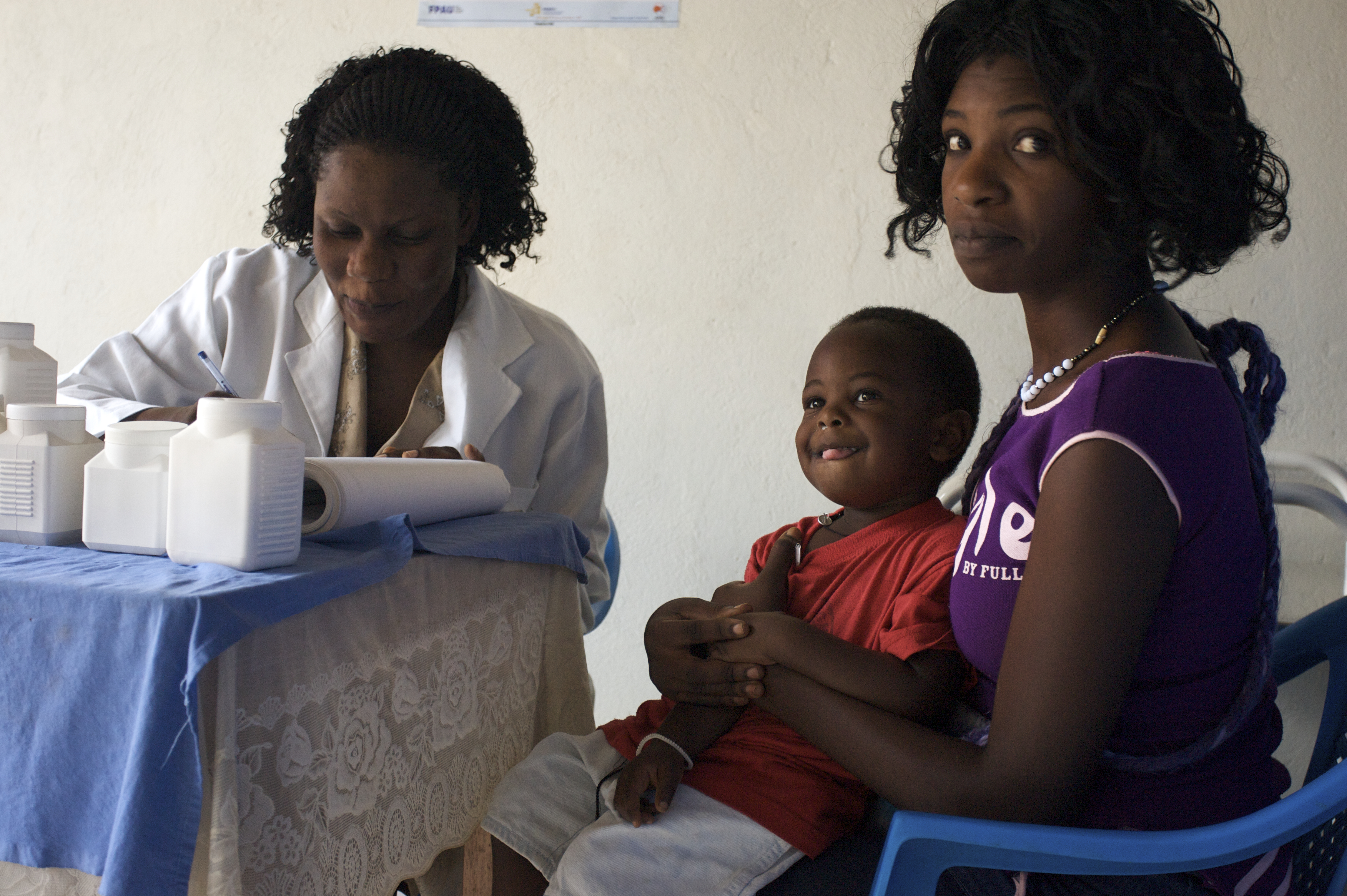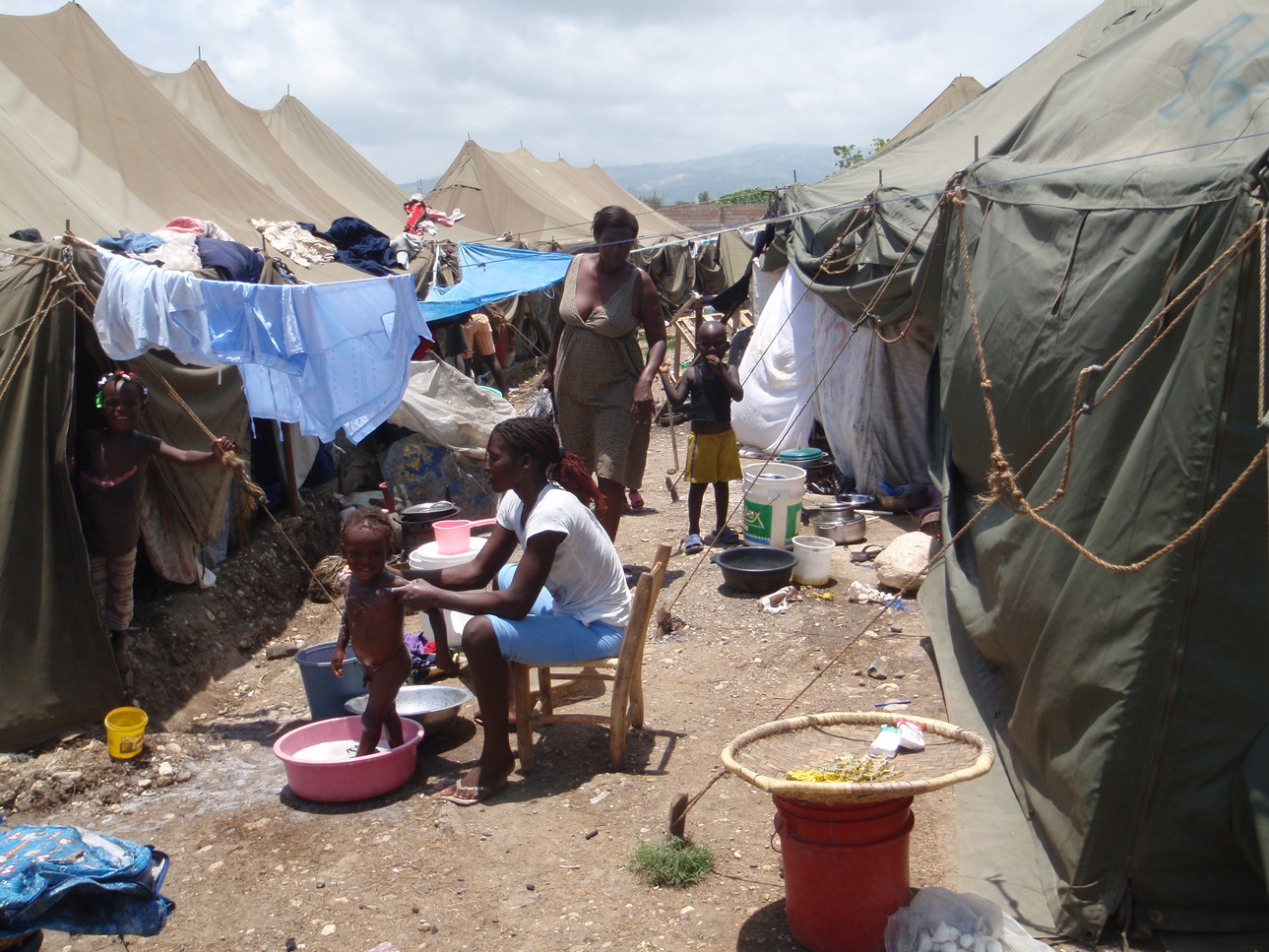
| 16 September 2016
Letter from Tewodros Melesse: "Ask for sexual and reproductive rights for refugees and migrants"
Dear friends, colleagues and partners, As September 19th, the date for United Nations Summit on Refugees and Migrants, approaches we can’t help but to continue to be overwhelmed by the rising number of refugees across the globe and their growing needs. It has become clear that the global community will have to take strong, committed and focused actions in order to ensure that the needs of those vulnerable populations are met. Children, the elderly and women are the ones most at risk in these perilous situations. We need to ensure that their specific needs do not go unnoticed. During this year’s World Humanitarian Summit in Istanbul, UN Member States, civil society and other stakeholders made commitments to increase their support in emergency situations. The Summit on Refugees and Migrants presents another unique opportunity for Member States to show resilient support. In the final draft of the Summit’s outcome document great strides were made in ensuring women’s rights and needs were addressed. Through strong advocacy efforts from IPPF UN Liaison Office, United Nations agencies and strong Member State commitment we were able to secure language that is a great step forward in access to sexual and reproductive health services. Specifically, thanks to our work, the declaration promises to: “…ensure that our responses to large movements of refugees and migrants mainstream a gender perspective, promote gender equality and the empowerment of all women and girls, and fully respect and protect the human rights of women and girls. We will combat sexual and gender-based violence to the greatest extent possible. We will provide access to sexual and reproductive health-care services...” The necessity for sexual and reproductive health and rights in humanitarian situations is critical. We, therefore, ask you to include in your national statements during the Summit on Refugees and Migrants Summit, the unequivocal requirement for the sexual and reproductive rights of refugee and migrant women to be fulfilled and that sexual and reproductive health services be systematically included in the refugee crisis response. I thank you in advance for the attention given to this very important matter and hope to count on you to support this key action. Together, we can make a difference in women’s lives, and bring to those that have lost everything a little bit of hope for the future. Yours Sincerely, Tewodros Melesse

| 17 June 2016
IPPF responds to Grand Bargain on Humanitarian commitments
Matthew Lindley, IPPF Humanitarian Transition Lead, comments on the Grand Bargain commitments from the World Humanitarian Summit. “There is no denying that sexual and gender-based violence, unwanted pregnancies, early and forced marriage, trafficking, sexually transmitted infections (including HIV), maternal morbidity and death increase in humanitarian situations. Any humanitarian effort needs to take a long view as the average time that people may be displaced or in camp can be a staggering 20 years. That is enough time for a woman to get pregnant, have a child and for a child to reach adolescence. The current humanitarian system has failed women and girls time after time, year after year. As traditional humanitarian funding and organizations largely concentrate on food, shelter, WASH (Water, Sanitation and Hygiene), livelihoods, nutrition and public health but not on sexual and reproductive health and rights as a lifesaving concern. The Grand Bargain is a welcomed move towards a vision where a comprehensive and collaborative approach is taken to save lives and with greater investment. Yet while there have been many discussions at the Summit around how women and girls and young people are particularly at risk and quite simply not able to access basic services, we have not seen this translated within the document. There is still no clear commitment to this area for core funding at all. We need to see more commitment to this area with core humanitarian funding for comprehensive sexual and reproductive health services as a matter of priority if humanitarian efforts are truly going to ensure that no one is left behind. “

| 24 May 2016
Global call for urgent action on sexual and reproductive health in humanitarian settings
Istanbul, Turkey- Tewodros Melesse, Director General of International Planned Parenthood Federation, Babatunde Osotimehin Executive Director, United Nations Population Fund, World Health Organisation and senior leaders from the Governments of Australia, Sweden, Norway, Netherlands and Jordan called for urgent action to include sexual and reproductive health in the immediate lifesaving interventions in crisis at the World Humanitarian Summit today. “Too often, sexual and reproductive health and rights in emergencies are overlooked and critically underfunded. It is a life saving intervention that protects dignity and keeps people protected when their world has been turned upside down. We need to ensure that there is a coordinated response on the ground which has the same status as other humanitarian response like food, shelter, water and sanitation. This is a minimum set of standards for a sexual and reproductive health frontline actions. We urge governments to factor to recognise and implement reproductive health into their own humanitarian response delivery.” said Tewodros Melesse, IPPF Director General. Reproductive health issues are the leading cause of women’s ill health and death worldwide and these problems are compounded during a crisis. Around 60 percent of preventable maternal deaths take place in crises and fragile settings. Women and girls are disproportionately affected by humanitarian crises exposed to early marriage, trafficking, rape, forced pregnancies, unattended service delivery during complicated pregnancies and delivery. 125 million people are affected by crises. One quarter of those people are women of reproductive age – that’s 31 million and women are 14 times more likely to die than men in a crisis. IPPF is calling for donor governments to ensure that services are more equitably distributed between conflict zones and natural disasters. In particular in conflict areas, lack of funding leads to worse sexual and reproductive health outcomes for women and girls. Rajat Khosla, Human Rights Advisor Reproductive Health, World Health Organization spoke of the urgent need to prioritize sexual and reproductive health in humanitarian settings, he said “We are now looking at people who are affected for 17 to 20 years by a crisis. We can no longer operate a business as usual approach. We need to change to a comprehensive health response that includes sexual and reproductive health and rights that leaves no one behind”. IPPF's new report “The Forgotten Priority: Sexual and reproductive health in crises” launched at the World Humanitarian Summit.

| 08 March 2016
IPPF welcomes new UN commentary on indivisible right to sexual and reproductive health
On International Women’s Day, the International Planned Parenthood Federation (IPPF) has welcomed a new commentary from UN experts which says that the right to sexual and reproductive health is indivisible from other human rights. “It is absolutely right for the Committee to address the issue of sexual and reproductive health specifically, today of all days,” said Tewodros Melesse, IPPF’s Director General. “Sadly millions of women are still denied their basic rights because they are poor, because they suffer discrimination or because they lack legal protection.” The 18 independent members of the Committee on Economic, Social and Cultural Rights said that the right to sexual and reproductive health was not only an integral part of the general right to health, but fundamentally linked to the enjoyment of many other human rights, including the rights to education, work and equality. They said that a lack of care for mothers in childbirth or a lack of access to safe abortion, often leading to maternal death, constitutes a violation of the right to life, and in certain circumstances can amount to torture. “No woman should die in childbirth in 2016 because of a lack of adequate care,” said Mr Melesse. “We know that access to safe abortion saves women’s lives, yet millions are denied that right.” IPPF is a network of sexual and reproductive health and rights organisations in 170 countries that are equipped to monitor and respond to any member of the public who wants information, services, contraception and access to abortion and are available to serve at the first point of response. For further information and interviews contact press office 02079398227

| 19 February 2016
IPPF calls for G7 leaders to prioritize the full range of sexual and reproductive health care services in Universal Health Coverage
18 February, Tokyo:The International Planned Parenthood Federation (IPPF) calls for G7 leaders to prioritize the full range of sexual and reproductive health care services in plans for Universal Health Coverage in their forthcoming Ise Shima G7 Summit in May. IPPF made this call at this week’s G7 Health Experts’ Meeting in Tokyo. IPPF said sexual and reproductive health care (SRH)services are essential because they save lives, are cost effective and offer universal benefits. IPPF highlighted that SRH services are critical to achieving women’s empowerment, equality and full participation in society. These services play a crucial part in the development of resilient health systems that can help reduce the impact of humanitarian disasters. Giselle Carino, IPPF Western Hemisphere Regional Director Designate, who attended at the meeting said: "Governments (public sector) cannot work alone to ensure that no-one is left behind. Locally-owned organizations, such as IPPF Member Associations, are working at the frontline supporting communities, particularly poor and underserved people including women and adolescents, to make a real and sustainable difference in their health status and realize human security. G7 leaders must recognize the role of civil society in health system strengthening and building a new global health architecture". IPPF also calls for: The principle of Universal Health Coverage: that everyone has the right to health without facing financial hardship and no social groups can be left behind. Essential sexual, reproductive, maternal, new-born, child and adolescent health services at the primary care level should be a priority of Universal Health Coverage because investment in these services is among the most cost-effective interventions that a health system can provide. The importance of the social and gender determinants of health should be recognized by mainstreaming gender equality into Universal Health Coverage and national health strategies. Making significant progress on both targets 3.7 and 3.8 would be transformative. Therefore IPPF urges the G7 to prioritize discussion of how these targets can be achieved during preparations for the Ise-Shima summit and in particular calls on the G7 to ensure that sexual and reproductive health services are prioritized in plans for Universal Health Coverage.

| 09 February 2016
IPPF support UN’s vision for tackling humanitarian crises
The International Planned Parenthood Federation welcomes the United Nations Secretary General’s humanitarian report which he delivered today. (February 9th) Ban Ki-Moon outlined five core responsibilities for the international community in a report which set out his vision ahead of the world humanitarian summit in May. These included better political leadership, protection for civilians, respect for humanitarian law, inclusive policies to make sure no one is left out, more flexibility and joined-up thinking from the aid community. He said the aid industry and his own organisation needed to urgently reform so they could react more effectively to today’s many crises. Director General, Tewodros Melesse said: "We strongly agree with the vision laid out by the Secretary General. At IPPF, we believe that there needs to be a serious rethink when it comes to the humanitarian response to the increasing number of crises around the world. “From our perspective we think it is essential that sexual and reproductive health and rights are included in the humanitarian response.” The figures for humanitarian crises are dramatic. More than a billion people alive today have seen their lives upended by crisis, war, instability; epidemics and disasters have left a long trail of turmoil and destruction. More than 100 million people in need of humanitarian assistance We know that a quarter of these are women and girls aged between 15 and 49 who are heightened risk of sexually transmitted infections, including HIV; unintended, unwanted pregnancy; maternal death and illness and sexual- and gender-based violence. The statics show that 56 per cent of maternal and child deaths take place in fragile settings, many of them affected by conflicts and recurring natural disasters. Over the past decade, IPPF has reached millions of people during floods, conflicts, earthquakes, cyclones when health care systems have often collapsed. At these moments IPPF Member Associations continued to serve the unreachable particularly women which are three-quarters of IPPF clients. We have an organizational strategy to address sexual and reproductive needs before, during and after humanitarian crises. IPPF’s first response is with its Minimum Initial Service Package, which is life-saving, and then IPPF transitions to its Integrated Package of Essential services, which is life-changing. Often our intervention in the aftermath of humanitarian disasters ensures that the sexual and reproductive health situation is better after the crisis than before.







